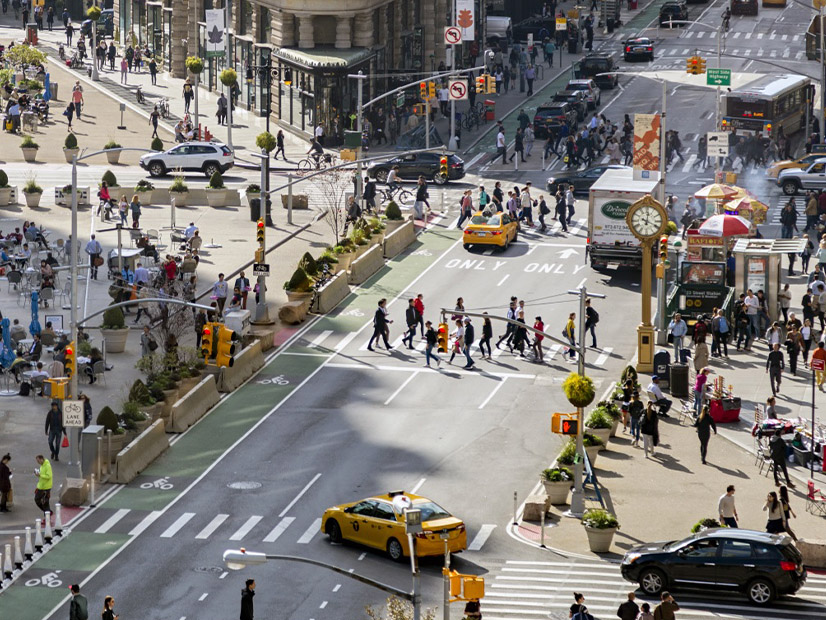New York City transit officials began working to implement their controversial congestion pricing scheme last week as New Jersey filed a lawsuit seeking to block it.
The Metropolitan Transportation Authority’s Traffic Mobility Review Board (TMRB), the six-member panel that will issue a recommended tolling structure, held its first meeting July 19 but did not make any decisions on the Central Business District Tolling Program.
The CBDTP, designed to reduce pollution and generate funds for mass transit and climate projects, received federal approval in May. (See NYC Congestion Pricing Plan Gets Federal Go-ahead.) Passenger cars entering Manhattan below 60th Street could be charged as much as $23 and trucks $82 during peak hours.
On July 21, New Jersey Gov. Phil Murphy (D) announced that his administration filed a lawsuit seeking to block the tolling scheme, blasting the federal government and the city for moving ahead on a policy that directly impacts New Jersey but is being implemented without its involvement.
“After refusing to conduct a full environmental review of the MTA’s poorly designed tolling program, the FHWA [Federal Highway Administration] has unlawfully fast-tracked the agency’s attempt to line its own coffers at the expense of New Jersey families,” Murphy said.
Murphy alleges that the government did not conduct a proper environmental review of the CBDTP, violating both the National Environmental Protection Act and the Clean Air Act.
Officials in the outer boroughs, fearing the plan could increase their own traffic, also have been unhappy. “If this plan goes forward, residents of Brooklyn, Queens, the Bronx and Staten Island will be treated as tourists in this city, and not equal citizens,” Staten Island Borough President Vito Fossella said at a briefing. “To sit here and then say to the people of Staten Island that you’re going to pay more, and your air quality’s going to be worse, doesn’t make any sense.”
The TMRB said 122 types of toll exemptions have been requested, including for “parents,” “artists” and “passenger cars.”
John Samuelsen, international president of the Transport Workers Union, received applause at the board meeting after saying the proposed nighttime carve-out, which would exempt tolls from midnight to 4 a.m., would hurt shift- and low-income workers.
John Durso, president of the Long Island Federation of Labor, also was concerned about those with low incomes. “If I get hit twice, once when I come in and once when I come home, and I am not making thousands of dollars, then that’s either taking food out of my kid’s mouth or paying my rent,” he said. “You can’t understand what it does to you when you’re pinching pennies.”
The MTA said about 700,000 vehicles enter the Central Business District daily, reducing average traffic speeds to only 7 miles per hour. “Congestion is bad for the economy, the environment and the quality of life for people who live in the CBD,” it said.
The agency has proposed providing discounts or tax credits to low-income residents. It said some proceeds could accelerate the replacement of diesel trucks with lower-emission vehicles and expand electric truck charging infrastructure.
The agency said similar programs in Stockholm and London reduced carbon dioxide emissions by 10-14% and 20%, respectively. But London’s program also has been controversial, with some blaming it for Labor’s poor results in elections last week.



